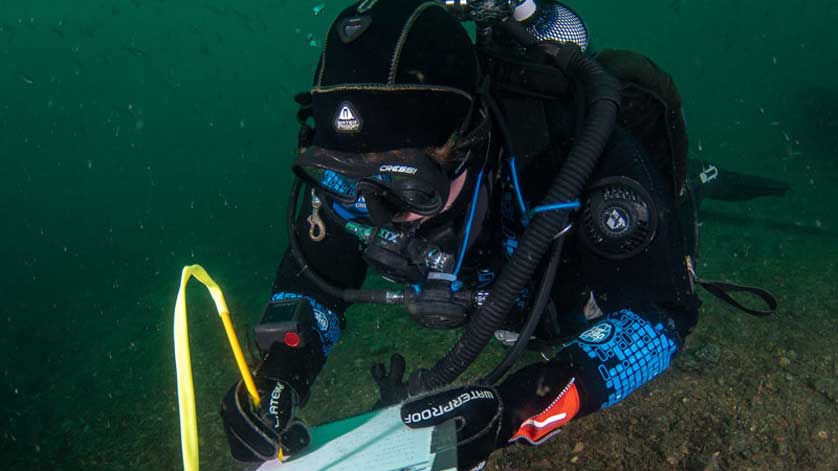WWI Ship Wrecks Cleared of 'Ghost Gear'

A specialist team of volunteer divers have successfully cleared seven WWI ship wrecks of potentially deadly ‘ghost gear’ on Scapa Flow.
Led by Ghost Fishing UK, the four-year project, involving marine scientists from Heriot-Watt University and World Animal Protection, has made the remnants of a scuttled German fleet safer and cleaner for divers and marine life alike.
Ghost gear is the term used to describe abandoned, lost or discarded fishing equipment, which is hazardous to human and marine life as well as the environment. There are hundreds of thousands of tons of it in the oceans, which can last for up to an estimated 600 years, snagging on rocks, ships wrecks, and even animals.
Dr Joanne Porter, Associate Professor at Heriot-Watt University’s International Centre for Island Technology, said: “The data that has been collated over the last four years will allow fisheries scientists to build a model to allow understanding of the component of the fishery which is lost due to ghost fishing. No fishers want to lose their gear, so by removing lost items from the wrecks and the marine habitat we are resolving the issues of lost catch, damage to wildlife, safety to divers and also the long-term legacy of plastics getting into the food chain as the items start to break down. This has to be a win-win for all concerned."
Scapa Flow, near Orkney, is a natural harbour and was used for safe anchorage throughout both world wars. The German High Seas Fleet was interned in Scapa Flow during the armistice negotiations following the war. The entire fleet was scuttled on the orders of Admiral Von Reuter when he failed to receive favourable news on the terms agreed in the armistice. Today, seven main wrecks sit in the waters and remain a significant draw for recreational divers.
Ghost Fishing UK was set-up to help remove this lost equipment from the marine environment, which is typically entangled in reefs and wrecks.
Its divers, working from two vessels, scoured and surveyed the wrecks of Scapa Flow including the battleships Markgraf, Kronprinz Wilhelm and König, light cruisers Coln and Karlsruhe, and destroyer SMS V-83.
Over the course of a week, the Ghost Fishing team and Heriot Watt University joined forces to give an evening of talks and the opportunity to ask questions via live feed at Stromness Town Hall.
Dr. Richard Walker, Associate Professor of Diving Science at Heriot Watt University, added: " "The 2018 project has reached a significant milestone. We are delighted to announce that the scuttled WW1 high seas fleet are now clear of any actively fishing ghost gear. The health of the ocean has caught the public’s attention and the outlook often looks bleak. We hope that this is the first in a long line of positive improvements to the marine environment."
Next year marks the centenary of the scuttling of the German High Seas fleet after World War one and the team have successfully cleaned these wrecks in preparation for this historic date.
Source: Heriot-Watt University

